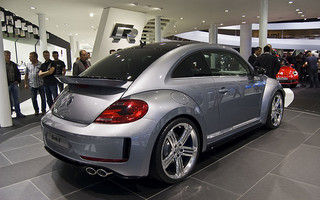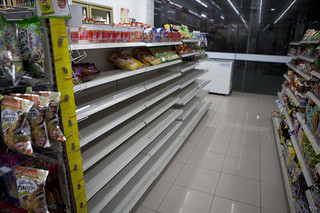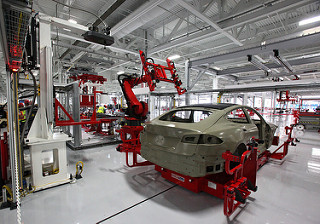China Speaks Out that Supply Exceeds Demand for Luxury Automakers

China’s economy has been booming for the past 15 years, but things are really slowing down. The auto industry is feeling the slowdown, too. New-vehicle sales in China are only half of what they were a year ago. Surprisingly, automakers are not slowing down production to match demand, and dealers in China are speaking out about it.
Luxury Automakers Continue to Manufacture Cars Despite Slow Sales
General Motors, Volkswagen, BMW, and other luxury automakers are still investing heavily in China. Despite the slowdown in sales, both Volkswagen and General Motors don’t seem to be decreasing their manufacturing rates in China. As a matter of fact, General Motors has plans to open five new factories and invest $14 billion. BMW is in a similar situation.
Even China’s domestic automakers, such as Great Wall Motors, Chery, and Geely are seeing fewer sales. They’ve always struggled to compete with foreign car manufacturers because of quality and safety issues, but this year seems to be worse than usual. This has caused almost all car manufacturers in China to have a surplus of goods, which is costing them money because of storage and logistics. Of course, car dealers are the ones that are really hurting.
Car Dealers Have an Overstock of Cars in Their Showrooms
Car dealers cut prices this year because of the slow sales. However, they are still obligated to buy the extra cars from manufacturers. This has hurt dealers a lot while automakers have seemingly no repercussions. Luo Lei, Deputy Secretary General of the China Automobile Dealers Association, complained to the government that this is not fair. He said, “Over the past years, carmakers, especially luxury brands, have been too aggressive in their quest for China market share. Now with the problem fully exposed, I expect to see an obvious slowdown in their pace of expansion next year.”
Some auto dealers are fighting back. Reuters reported that because of the protests, BMW will pay $820 million in subsidies to dealers in China to share the costs of storing the surplus of vehicles. The overstock is at the highest level it has ever been. Other car manufacturers may need to pay similar subsidies to keep car dealers at bay.
Why Luxury Car Manufactures Are Still Betting on China
Even though China’s economy has slowed down, car manufacturers still think that it is an important location to do business. Some manufacturers suspect that Chinese consumers will become more like Americans and embrace the idea of financing and leasing. This would boost auto sales and normalize the surplus of cars. The International Business Times reported that only 20 percent of Chinese buyers chose auto loans while 85 percent of Americans opted for auto loans.
The problem right now is the storage of surplus vehicles and the fact that dealers seems to be responsible for the costs instead of car manufacturers. The market most likely will normalize, but car manufacturers need to deal with their current supply chain problems instead of waiting for the market to turn around.







